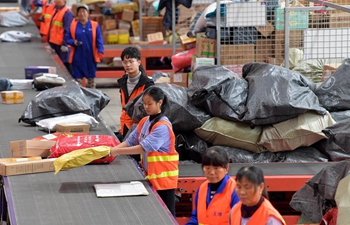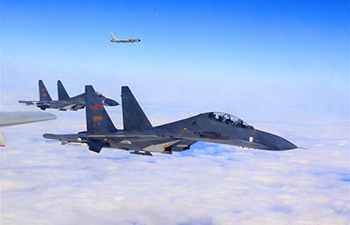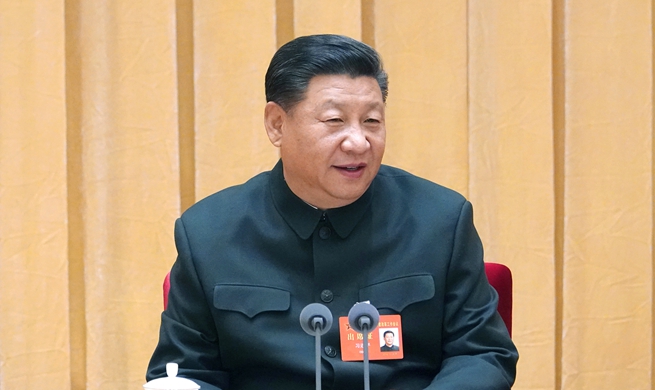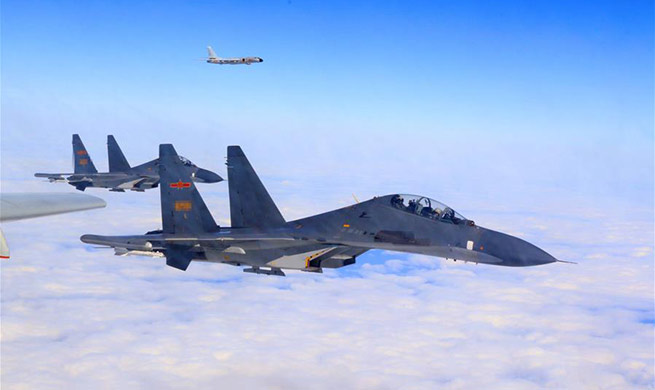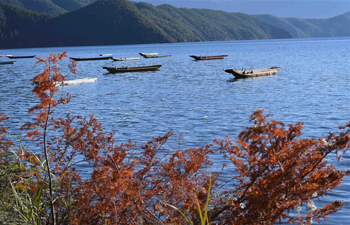UNITED NATIONS, Nov. 14 (Xinhua) -- The UN Security Council adopted a resolution on Wednesday to lift nearly decade-old arms embargoes and targeted sanctions on Eritrea after the country's recent rapprochement toward neighbors in the Horn of Africa.
In a unanimous vote, the council approved Resolution 2444 to lift arms embargoes, travel bans, asset freezes and targeted sanctions on Eritrea, which had been in place since 2009.
The removal of the sanctions was the culmination of regional political developments that unfolded since Ethiopian Prime Minister Abiy Ahmed and Eritrean President Isaias Afwerki signed a peace agreement and announced normalization of ties in Asmara on July 9, ending a 20-year conflict.
The thaw also led to friendlier relations between Eritrea and other countries in the region, namely Djibouti and Somalia.
The British-drafted resolution urged Eritrea and Djibouti to work toward normalizing ties and settling their 2008 border dispute, and requested the UN secretary-general to report to the council on the issue by Feb. 15 2019 and then every six months.
In the meantime, the text extended the arms embargo on Somalia, imposed in 1992 with the aim to cut Al-Shabaab rebels off from any source of arms.
As a measure to withdraw monitors from Eritrea but keep them in Somalia, the document terminated the mandate of the Somalia and Eritrea Monitoring Group and established the Panel of Experts on Somalia in its stead.
The council imposed sanctions on Eritrea in 2009 for its alleged support of Al-Shabaab insurgents in Somalia, an accusation Asmara has long denied. The UN's most powerful body slapped more sanctions on the Horn of African country in three other resolutions from 2011 to 2013.
Wednesday's resolution recognized that UN monitors have "not found conclusive evidence that Eritrea supports Al-Shabaab."
After the vote, British Ambassador to the UN said the agreement to lift sanctions on Eritrea recognizes the improvements in regional peace and security and the positive steps that Eritrea had taken to meet the demands of the council.
Taye Atske Selassie, the Ethiopian envoy to the UN, said "it is highly appropriate for the Security Council to take this decisive judgment when countries of the region are turning a new page in their relations."
"The council's decision today will help to capitalize on the opportunity we are now creating to transform the region into a zone of peace and prosperity and usher a new area of friendship between all countries of the region," he added.
Eritrea became independent from Ethiopia in 1993 after 30 years of fighting. It had a decades-long border dispute with Ethiopia, during which a war went on from 1998 to 2000 and some 80,000 people died.
After Ethiopia's new Prime Minister Abiy Ahmed assumed office in April, the four countries in the Horn of Africa region underwent unprecedented rapprochement due to their reformist moves.




